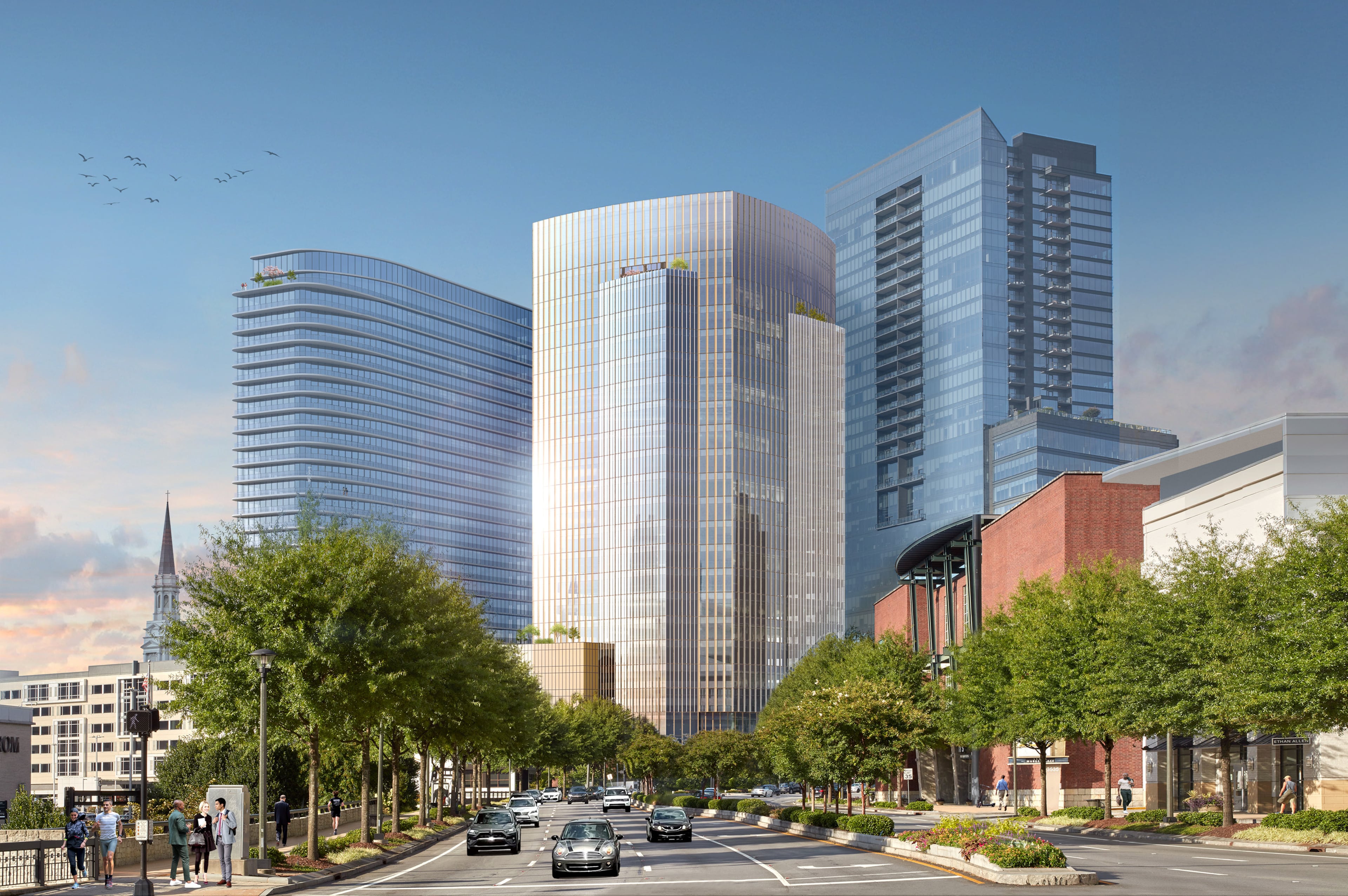Gridlock Guy: Residential cost of GA-400 expansion illustration of bigger conundrum
Atlanta’s population is booming, as evidenced by, well, many things. The crowd swell keeps this weekly column topical, as more residents slowly commute locally and more freight uses Atlanta as the transportation hub that it is. Sandy Springs residents recently learned the cost of expanding the infrastructure to fit these demands.
» RELATED: Hit the brakes on transit expansion? Gwinnett voters to decide
GDOT announced two weeks ago the need for the land where 19 homes sit on Northgreen Drive, in order to expand GA-400 by two lanes in each direction. Northgreen sits just a football field-or-so to the west of GA-400, as it runs off of Spalding Drive. The optics of this look a bit worse for GDOT, as the addition to GA-400 will be Express Lanes - A.K.A. toll lanes. Those always are polarizing.
"We are entering the right of way-acquisition process," GDOT spokesperson Natalie Dale explained on the March 4th "The Mark Arum Show" on News 95.5/AM750 WSB. Dale said that this is different than and precedes eminent domain. In fact, Dale told Arum that both federal and state laws outline a specific process that GDOT must follow, before eminent domain even comes into play. "We are entering a negotiation with these property owners to negotiate a sale of their property."
Dale said that the government can exercise eminent domain only if the homeowners refuse the offers. “It is one of the harder things that we have to do; we don’t have to do it a lot. I can’t imagine what it would be like for someone to come to me and tell me they need my home. When we design these projects originally we look to avoid any circumstance like this. Beyond that, we look to mitigate it and then to minimize the impact, so if we only had to take part of the property, and then mitigate it if we have to take it all.”
Dale said GDOT does not enjoy making these hard choices. “And I think that’s sort of a misconception — that this is something that we do without feeling and we just do.”
In this case, Dale said it is absolutely necessary. “We want it to be part of an ongoing Express Lanes system in the metro area,” Dale explained. New such lanes along I-285, I-85, and GA-400 would be double and separate in each direction. They would not be reversible like the lanes along I-75 on both sides of town. The GA-400 lanes would go from I-285 to McFarland Pkwy. and the I-285 lanes would reside in all directions anywhere north of I-20. Construction for the GA-400 lanes will not begin until around 2021 and may not conclude until 2024.
» RELATED: North metro Atlanta mayors propose east-west transit plan
Dale and Arum discussed how the I-285/GA-400 corridor, an area already carved up for the new interchange GDOT is building, is chock full of both businesses and residences. "You have some pretty densely-populated residential communities that are set up alongside of the interstate — not a great scenario for avoiding trying to take property," Dale said.
This, again, brings up a real problem for the desirable living places in Atlanta. More people bring more traffic. More people galvanize a need for more housing. More traffic means a need for bigger roads. The construction of bigger roads sometimes interferes with said housing. And an increase in people brings the increased need for commercial areas. And so on and so on.
As tastes and demands have changed, the “live, work, play” concept has made popular both condos and townhomes that are near both public transit and places to, well, do life. Compressing living spaces in convenient areas can free up more room for development and roads and decrease traffic.
On Arum's show, Dale quickly outlined GDOT's Major Mobility Investment Program, a cadre of 11 projects statewide that aim to decrease traffic congestion by 5% by 2030. That's a 5% decrease statewide, not just in those 11 zones, so the improvements are significant. But they come not only at a significant monetary cost, but possibly a residential one.
Looking ahead, the idea of traditional, spread-out subdivisions in highly populated areas works against the efficient expansion of roads, highways and mass transit. Just as the car culture must change at least slightly, so must residential culture. This isn't a call to action for all situations. But this notion is something to consider in both city-planning and life-planning moving forward in Metro Atlanta.
» RELATED: Federal budget deal allows Georgia DOT to catch up on road work
Doug Turnbull, the PM drive Skycopter anchor for Triple Team Traffic on News 95-5 FM and AM-750 WSB, is the Gridlock Guy. He also writes a traffic blog and hosts a podcast with Smilin’ Mark McKay on wsbradio.com. Contact him at Doug.Turnbull@coxinc.com.

